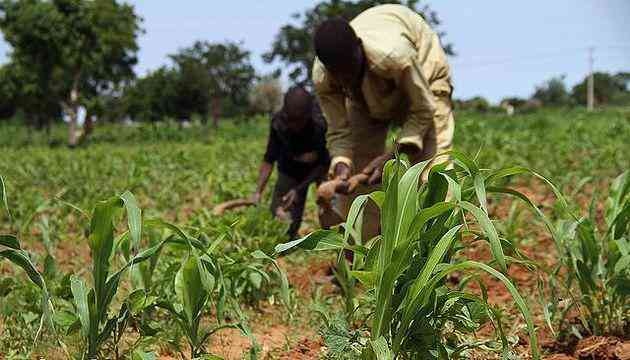
THE support being given to the agricultural sector is coming in handy for farmers, who always complain that they lack financial assistance and are not eligible for bank loans due to lack of collateral.
Compounding their predicament is that most farmers are beneficiaries of the land reform programme and, therefore, do not have titles to the land they hold.
This has seen A1 farmers, mostly holding small plots, shying away from approaching banks for financial assistance.
Just yesterday, we learnt that the Japanese government has availed US$5,1 million to cater for at least 37 500 smallholder farmers to help them breathe life into their farming activities.
The funds will be distributed through the World Food Programme.
The assistance has come in handy in that most farmers’ crops last season failed as a result of the El Niño-induced drought, hence they are looking forward to recover this season.
We have a big challenge in Zimbabwe, in that many of the beneficiaries either sell the farming inputs or divert the funding to other purposes.
We had the youth loan facility a few years ago, where young people would apply for loans from banks and would get up to US$5 000, which they splurged on cars, beer or other non-productive things.
- Teachers, other civil servants face off
- Veld fire management strategies for 2022
- Magistrate in court for abuse of power
- Vungu Dam water treatment and irrigation project takes off
Keep Reading
They did not repay the loans.
Today, we have farmers who are getting a shot in the arm to help them resuscitate their projects.
The Agricultural Marketing Authority (Ama) has warned farmers who divert farming inputs or sell their produce on the black market.
According to Statutory Instrument 79 of 2017, inputs such as seed, fertilisers and chemicals provided under these programmes should be used strictly for their intended purposes, with all contracted produce delivered to designated depots, Ama reminded farmers.
Many Zimbabweans are facing hunger in rural, urban and peri-urban communities, with estimates putting the figure at around eight million people.
Then there are those who are staring at starvation, whom developmental organisations have put at around three million. These people are in serious need of food aid.
Today, if they receive even a 10kg bag of maize seed, they will remove the green colouring, dry the seed maize and take it to the nearest miller because hunger is knocking hard on their doors.
What is needed is food aid and a little funding to buy basics to keep them going until the lean season is over, possibly at the beginning of the second quarter next year.
In-between, their lives will be hanging on a gossamer as they strive to put a single meal on the table for the day.
Therefore, educating them on the benefits of putting seed into the soil and reaping next year becomes crucial.
Most of these farmers’ lives are trapped between a rock and a hard surface.
On the one hand are a hungry people with little funding to restart their farming operations, on the other is a political party that is trampling on those believed not to be sympathetic to it.
The same people are left out when it comes to food aid.
Politicians, the ruling party and the government should be sincere in making sure everyone benefits from such handouts.
Hunger and starvation know no political affilliation or boundary.
The same is true for drought and other natural disasters.
Government should assist everyone affected.
It should severly punish those who abuse inputs or food aid, and make sure they reach the intended beneficiaries.






